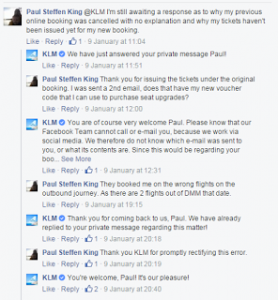 For any company that has a winning attitude, nothing matters more than getting the right people in the right positions. Therefore, as a job applicant, during the interview process you must make a compelling case that you are intelligent, competent, autonomous and knowledgeable in the desired areas.
For any company that has a winning attitude, nothing matters more than getting the right people in the right positions. Therefore, as a job applicant, during the interview process you must make a compelling case that you are intelligent, competent, autonomous and knowledgeable in the desired areas.
However, it’s a catch-22. If you come across as attempting to convince an interviewer that you possess these qualities, you are much more likely to appear desperate rather than well-rounded.
Essentially, the moment you begin to directly brag and display fake arrogance is the moment you lose an interviewer’s interest and your attractiveness as a job candidate. People hate being sold and hiring managers, our marketing recruitment professionals and HR representatives are just people, after all.
This begs the question of how one goes about influencing a hiring manager without coming across as ingenuine and needy of a job? The answer is subtlety. The only way you can “sell” the interviewer is to let them draw their own conclusions about you.
Luckily, there are certain things you can do to increase the odds that their conclusions are going to be positive and welcoming, regarding hiring you. Below, you’ll find some key information that will allow you to sell yourself without actually “selling” yourself.
Without Even Saying a Word
When an interviewer meets you, they instantaneously categorize you as a winner, loser, or maybe somewhere in-between simply by how you present yourself. Use this knowledge to your advantage and let your looks, posture and facial expression sell for you prior to speaking your first word.
For instance, when you greet an interviewer with a full smile and wide-eyes, they are much more likely to associate you with positive qualities. Your facial expression should say, “I like you.” People like others who like them and tend to associate those people with desirable qualities such as integrity and competency. Thus, they are much more eager to want them around the office.
Regarding dress – know that opposites do not attract. For instance, you are not likely to be perceived well at a bank if you underdress for the interview. Don’t intentionally stick out. It will not build the desired rapport. Familiarity breeds fondness.
Moreover, studies have shown that matching posture and movements will build trust and mutual respect. Without being obvious, do your best to mirror the interviewer’s body language.
The Most Effective Interviewing Preparation
People (interviewers included) are interested in themselves and their own needs. Therefore, if you don’t know what your audience or a hiring manager wants, you can’t sell them.
Luckily, the job description will give you more evidence than you need to formulate an accurate thesis as to what the individual wants in an employee.
For instance, if a job description states the employer wants someone who is autonomous, take time the evening before the interview to write down a story or example of your autonomy. With that example in mind, work it into the conversation at the appropriate time. Through the anecdote, the hiring manager will naturally see that you are the type of person who will allow them the ability to focus less on managing you and more on the necessary tasks they need done.
If they list a certain skill that you have in-depth expertise with, formulate questions that display your knowledge of the topic. Don’t wait until the end of the interview to present these inquiries, as an interviewer’s assessment of you is likely to be firmly set by then. Rather, ask away when the topic is touched upon.
During the Interview
Speak without criticism: nobody wants to be around a pessimistic person. Rather, interviewers are more readily sold by those who have a positive, happy outlook and perspective on life. In a genuine manner, convey thoughts that discuss success and, rather than talking about insurmountable hurdles, discuss how you plan to overcome any obstacles.
Utilize your rate of speech as an influential measure. When you are making important points during the interview, after the statement it’s going to be helpful to pause for a second and mentally allow the hiring manager digest what you just stated.
In the End
The phrase “sell yourself” is popular when it comes to job search. The basic idea is sound, but too many people lose any nuance in the attempted execution. “Selling yourself,” when it comes to interviewing, is really about paying attention to the cues you both receive and send, before and during the interview.
Concentrate less on “selling yourself” and more on putting your best foot forward.
Business & Finance Articles on Business 2 Community(110)








